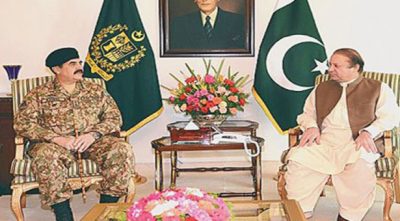By
Sattar Rind
On December 16th 2014 the Taliban attacked the Army Public School (APS) at Peshawar, capital city of the Pakhtunkhwa province of Pakistan and killed 149 people, of which 133 were reported to be children. It was a traumatic day for the people of Pakistan, an unbearable sadness of failing to protect their children. The incident touched the hearts of each Pakistani father and mother, brother and sister.
The attack shocked the international community, ‘The Guardian’ accurately terming it ‘Pakistan’s 9/11’. The whole of Pakistan was in mourning and felt as though the children were killed instead of them. The pain was felt throughout Pakistan, a great sense of helplessness sweeping the nation, as if their own children were killed before their very eyes.
It ignited All-Party Conferences and an Army High Command meeting held at General Head Quarter (GHQ), Rawalpindi, with thrilling promises that such a thing will never be accepted and the limit had reached its end. The parliament meeting started and after only a few days discussions, the National Assembly and Senate of Pakistan had passed unopposed, Constitution 21st Amendment, on the 6th January 2015.
Only two religious parties, Maulana Fazal-ur-Rehman’s Jamiat Ulema-e-Islam Pakistan (JUIF) and Jamiaat-e-Islami (JI), most intriguely had not taken part in voting as they were of the view that a terrorist can be any one thus the definition of terrorism should not be associated with religious people.
They also wanted to omitted the word ‘’Madrasa’’ from the 2015 amendment bill. They were pretending that all Madrasas are not for creating terrorists. It was the JI who on the death of ex-Taliban Amir leader Hakimullah Mehsud in a drone strike on November 1st 2013 declared him ‘Shahid’ (a martyr). Therefore it was not surprising they did not take part in voting.
As a result of the agonising attack on the APS school children, a Nation Action Plan (NAP) signed by the president of Pakistan came into existence the next day. 247 Members of the National Assembly along with the Senate voted in favour of the 2015 Bill aimed at setting up constitutionally protected military courts to try civilian terror suspects.
Today however, after seven months, all hope appears to have expired as everyone still waits to see any sign of the NAP’s action against terrorists and Madrasas in the country, hundreds of thousands in numbers, their leading organisers and founders in no way feeling threatened by the 2015 Bill. The terrorists are still present with the same threatening style and voice, the attacks from which admittedly have reduced, but not as a result of the National Action Plan.
The army was already fighting terrorists under the operation Zarb-e-Azb in North Waziristan from 15 June 2014 in the wake of the 8th June attack on Jinnah International Airport in Karachi. This disorganised the Taliban causing them to seek a new place of safety, pushing them out of their ‘heaven’, the operation still proceeding with full confidence.
The APS Peshawar attack was also the revenge for the aforementioned military operation as the Taliban in a statement claimed they selected the army school for the attack, targeting our families and females and wanted them to feel the pain.
The Taliban’s actions awakened Pakistan against the terrorist group to the extent that they must be punished and should be eliminated once and for all from the country, but such a dream did not come true. Such optimism went in vain and the NAP appears to have failed.
Therefore, when the Supreme Court of Pakistan’s Judge was terming the NAP a ‘big joke’, no one in Pakistan was surprised. It was the second time the Court had been lambasted by the government over its inaction during the past six months.
According to reports the Judge has also asked the government to declare the NAP as ‘paperwork only’, if it cannot implement the plan.
Another honourable Judge of the Supreme court, who was also a part of the three member bench, said that there was a consensus among all provincial governments to remain incompetent and inefficient.
Thus it was the true feeling of the public of Pakistan to be wary of the NAP. Since its inception, no action under the NAP has been observed by the public of Pakistan, the fear of terrorism in Pakistan prevailing much as it was previously.
The government appears only to be interested in looting and plundering public money. No action against the militants and manufacturer of militant forces, Madrasas, has ever been taken. There are reports that the NAP has taken action against hate speeches of a few mullahs and more than a thousand cases has been registered, but it is believed that the grass rooted action needed the most has never so far been observed.
This is alarming and disturbing for the nation, hoping for genuine action against the phenomena which had existed since the 1980s. This made the people of Pakistan mentally weary and increased aggression and uncertainty in society. No one feels secure and the relative look of unease on each member of the public is easily detectable. Moral values have plummeted and everybody seems to be living a depressive life.
School walls have now been raised up to 8 feet and private security personnel stand at gates and above school buildings causing more fear in the school children and their parents. Constant tension is the business of the day if one were to adopt such an old fashioned phrase. People truly appear to be living in an unbelievable world.



No Comments Yet!
You can be first to comment this post!